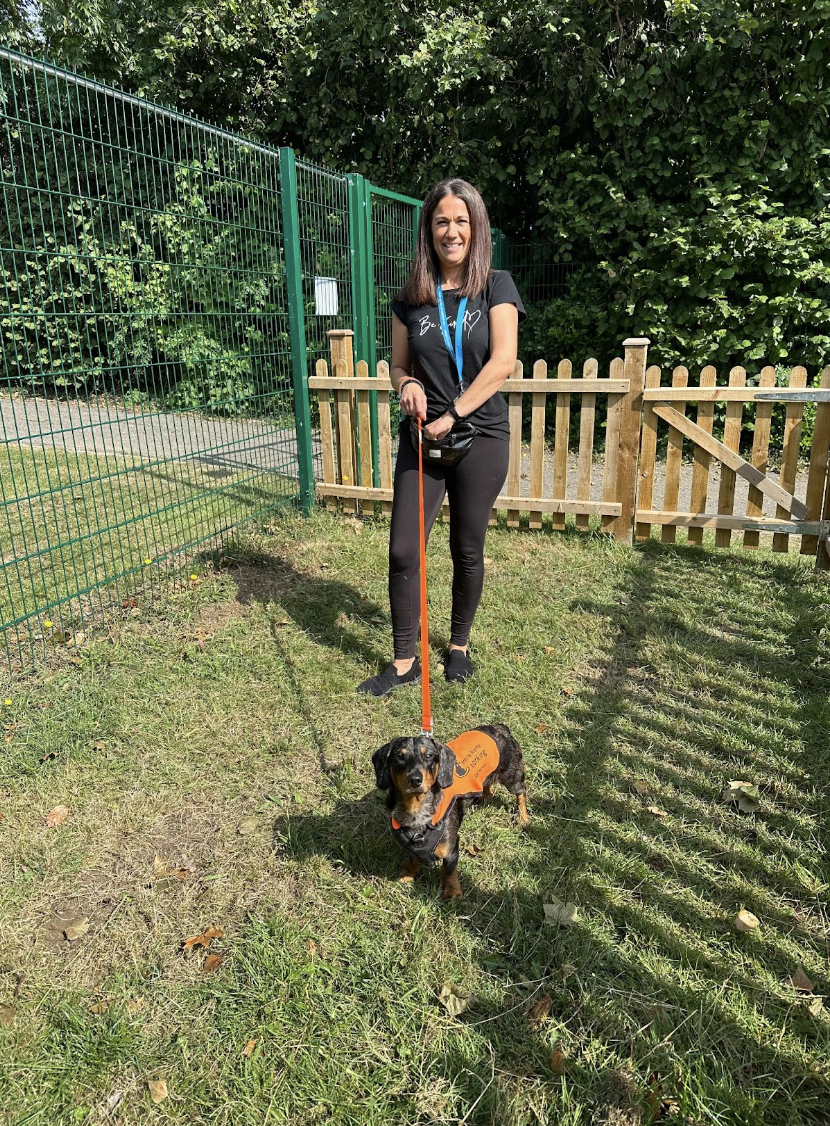At The Hundred of Hoo Academy, we are committed to supporting the mental health and wellbeing of our pupils and staff. We have a supportive and caring ethos and our approach is respectful and kind, where each individual and contribution is valued.
The Hundred of Hoo Academy has an onsite Counsellor, Mentor and a Social & Emotional worker who support children across the school in a variety of ways. We run Nurture and Self-esteem groups to support the children. Children are given the opportunity to speak about how they feel and to support each other. These staff members will also support in the classroom where required and is available to those in need, including parents.
Meet the Inclusion Team

Social skills is a 7 week group programme that will support you in learning skills and strategies to help manage a range of difficulties that you may face in day to day life. The main areas of focus are Building positive friendships, the importance of listening, respect, consideration, the negative impacts of bullying, building confidence and self-esteem, showing empathy and communication skills. Each group will have 4-8 students and will be weekly. Each session will involve a mixture of activities such as games, written tasks, talking activities and art and crafts.

Positively me is a weekly programme focussed on either building confidence, emotional development or anxiety management. You will be given your own journal to work through, with guidance and at the end of the programme you will keep your journal and be encouraged to continue with this and to revisit strategies learnt during the sessions.
Dog Mentoring involves working each week with Miss Irvine and Monty, our school mentor dog. The programme helps you to build your confidence, social and communication skills, relationships and problem solving. You will carry out lots of activities with Monty, such as fetch, agility, grooming etc. You will be given the responsibility of getting Monty ready for his walks and will have a checklist and command word cards to help you do so.
Our ELSAs are trained staff who offer emotional support. They offer 1-1 support to students, helping them with difficulties such as anxiety, loss, bereavement, low mood. Students will be given support with understanding their feelings to help build resilience and learn problem solving skills to find solutions to their worries. ELSAs meet with their students weekly for a total of 6 weeks. The sessions involve a mixture of activities such as games, written tasks, talking activities and art and crafts.

Counselling is a safe, private and confidential space where students can talk about anything that is troubling them. Difficulties such as OCD, trauma, loss, panic attacks, bereavement, high levels/complex anxiety, significant low mood, body image, school avoidance, suicidal thoughts, self-harm, any difficulty that significantly impacts on daily living. Counselling can be talking, playing or using arts and crafts, whichever suits you best.
We have trained staff in school to support students who are self-harming. Staff meet with students 1-1 on a regular basis to support them with self-care, alternative coping strategies and explore the difficulties they are experiencing.
Inclusion at The Hundred of Hoo Academy
- Counsellor
- ELSA / MIND
- Wellbeing Groups/Mentoring NELFT
- Dog therapy
- Staff Self Harm Ambassadors/ Peer Mental Health Ambassadors
We hold fortnightly Inclusion meetings where the needs of pupils who have been referred are discussed and the most appropriate strategies and support are assigned. The range of support offered is shown in our tiered support triangle.
The Academy has an on site school counsellor for 4 days a week. Paula supports pupils with high level needs.
- a mental health condition, such as depression, anxiety or an eating disorder
- a difficult life event, such as a bereavement, a relationship breakdown or work-related stress
- difficult emotions – for example, low self-esteem or anger
- other issues, such as sexual identity
Due to the increasing number of pupils joining the academy who present with issues such as anxiety, every Monday lunch we have a drop in session dedicated to year 7 pupils only.
The Academy is now working in partnership with MIND, a charity that offers advice and support to young people who are struggling with their mental health.
Every year, one in four people will experience a mental health problem.
A representative from the charity will be on site each week supporting pupils in making sense of what’s going on, why they may be feeling a certain way and most importantly, that it’s okay to ask for help.
- The Emotional Wellbeing Practitioners form part of the Government’s national initiative to work alongside schools to support and improve children and young people’s emotional wellbeing and mental health.
- Pupils aged 7-18 who present with mild to moderate anxiety or low mood. Whole year groups, assemblies or classes.
- They offer up to 8 weekly sessions of support for low mood (feeling down, unmotivated or lacking enjoyment in life) or anxiety (feeling tense, worried, nervous). This may be delivered in a group format or on a 1:1 basis. This support will involve talking to young people about what they want to work on, supporting the young person to learn about their difficulties and emotions, set goals and learn new skills to help them to feel happier and more confident.
- Pupils will build their resilience, learn how to manage difficult thoughts and regulate their emotions.
The presence of a therapy dog in our school supports cognitive development: concentration, attention, motivation, and relaxation and helps reduce high stress levels, which inhibit effective learning and performance. The benefits of having therapy dogs in the classroom include:
- Physical benefits. Interaction with therapy dogs has been shown to reduce blood pressure, provide physical stimulation and assist with pain management.
- Social benefits. A visiting therapy dog promotes greater self-esteem and focused interaction with other students and teachers.
- Cognitive benefits. It has been empirically proven that therapy dogs stimulate memory and problem-solving skills.
- Emotional and mental health benefits. A recent national survey of adolescent mental health found that about 8 to 10 percent of teens ages 13 to 18 have an anxiety disorder. A therapy dog can lift moods in the classroom, often provoking laughter. The therapy dog is also there to offer friendship and a shoulder to lean on for students.







